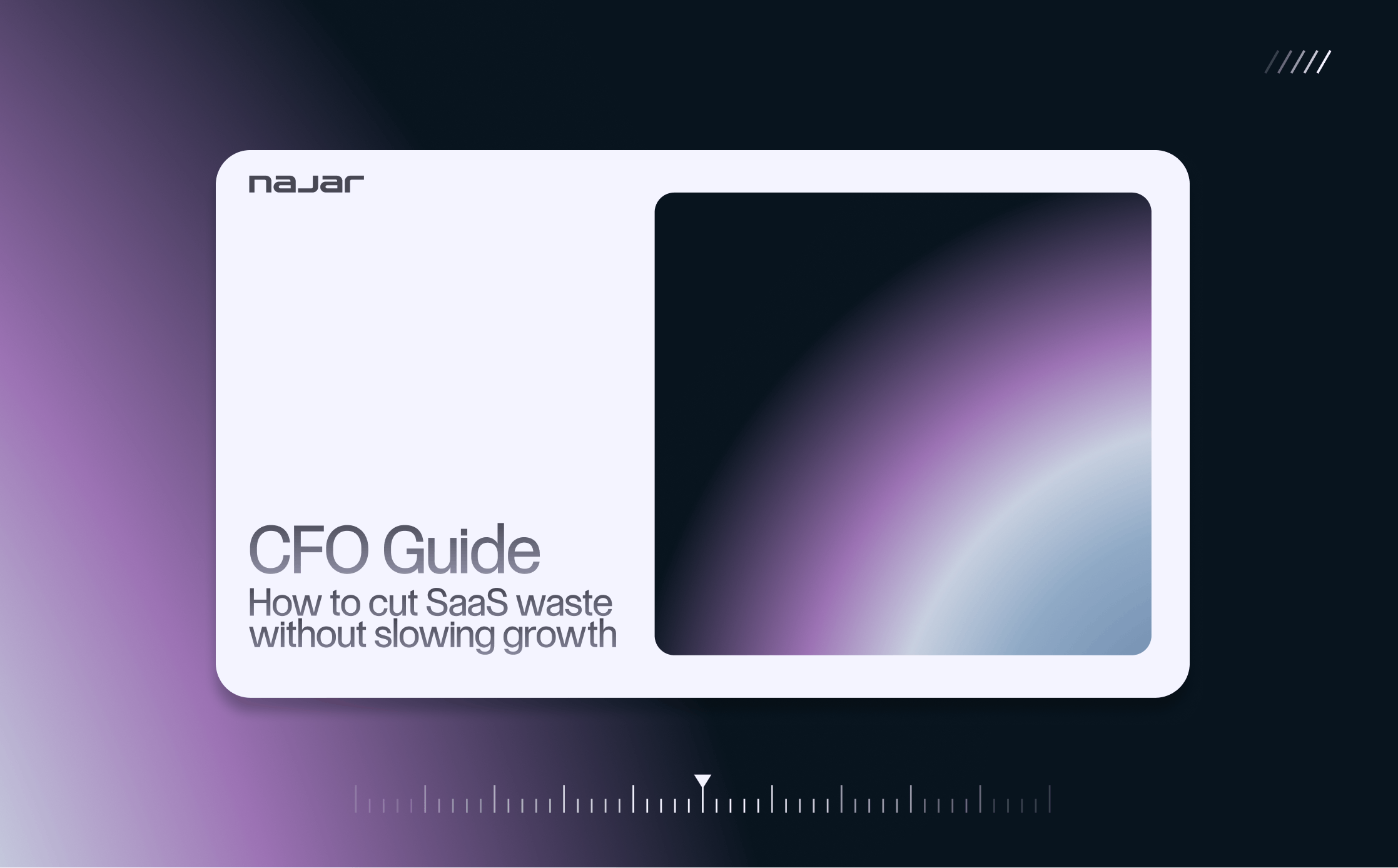The business world is evolving at breakneck speed, and to stay competitive, it's essential to adapt to new technological trends. Global spending on the public cloud for Software-as-a-Service, or SaaS, continues to rise, according to a Gartner study.
This unprecedented growth demonstrates the importance of SaaS solutions, and the confidence companies have in the benefits they can deliver.
SaaS is a method of software supply that uses cloud computing. Instead of downloading and installing software on a local computer, SaaS enables end-users to access a cloud application via an Internet browser.
This method, which has become essential in recent years, enables companies to improve collaboration, transparency and visibility throughout the supply chain (supply chain, inventory management, resource management, etc.), whatever their sector of activity.
SaaS-based procurement offers many advantages, including cost and flexibility. However, it is also associated with certain risks, including those of security and dependency. So it's important to do your research and choose a reliable service provider.
In this article, Najar will help you choose the best SaaS provider to meet your needs.
The benefits of SaaS procurement
SaaS plays a key role in modern procurement practices.
With software as a service, customers don't have to pay for a license to use a specific version of the software. They simply use an online service freely, or pay a subscription fee to access their cloud services.
The benefits of SaaS
SaaS solutions enable companies to improve their supply management in a number of ways:
- Greater efficiency: SaaS procurement methods can be accessed from anywhere.
- Rapid implementation.
- Cost savings: installation and infrastructure costs are very low, and there are no capital expenditures to spread over time.
- Greater flexibility and scalability: as with any cloud solution, SaaS provisioning is based on a flexible contract that can be adjusted according to the number of users. Companies are billed only for what they use, enabling them to optimize their budgets and meet their needs.
How are SaaS solutions revolutionizing the market?
There are a multitude of SaaS tools revolutionizing the business world on a daily basis. Here are just a few examples:
- Salesforce introduced the concept of cloud-based customer relationship management (CRM), offering companies a centralized platform for managing their sales, customer service and marketing activities, without having to invest in expensive infrastructure. In this way, small and medium-sized businesses can access solutions once reserved for large corporations.
- Dropbox has transformed the market in its own way by offering online storage services, enabling users to synchronize their files across different devices, thus facilitating collaboration and greater efficiency between different members of a company.
- Slack has also innovated by offering a centralized communication service where teams can exchange instant messages: no more scattered e-mails and threads!
- The cloud-based online e-commerce platform Shopify has also revolutionized the business world: it allows them to easily create online stores, manage inventory, process payments and personalize their shopping experience. Now, businesses of all sizes can compete with the e-commerce giants through a site that simplifies every aspect of online sales.
- Finally, Adobe Creative Cloud brings together applications such as Photoshop, InDesign and Illustrator: rather than purchasing costly individual licenses, companies now have access to the entire Adobe suite through a monthly subscription. Users can access the latest versions of these software products and benefit from new functionalities.
Facilitating the supply chain
By using SaaS methods, companies can automate tasks such as order or inventory management, or invoice approval.
For example, a company can set up automatic approval processes to ensure that purchases comply with company policies and budgets.
SaaS procurement methods also enable companies to outsource an aspect of their information system, such as messaging, purchasing management or website creation. This allows them to concentrate on their core business.
Key features of SaaS procurement
SaaS solutions offer several key features for businesses:
- Real-time monitoring and analysis: these tools enable companies to better understand customer needs and optimize their strategy (better understand their production requirements, avoid stock-outs, etc.).
- Centralization of procurement activities: SaaS procurement makes it easier to manage suppliers, monitor spending and negotiate contracts from a single interface.
- Simplified user experience: access to solutions is intuitive and easy to use, with rapid access to the tools and information you need.
Concrete solutions to concrete problems
SaaS procurement methods enable companies to solve competitiveness-related problems.
How can they do this? Firstly, SaaS procurement methods enable companies to track their procurement expenses in real-time, from the purchase of raw materials to office supplies. In this way, companies can identify potential sources of savings.
Secondly, SaaS procurement software enables companies to monitor their procurement spend over time and adjust their strategy accordingly, thanks to in-depth financial analysis.
In this way, SaaS solutions can provide greater visibility over spending and purchases made, while facilitating collaboration between different teams for an effective forecasting method.
Using advanced analytics, SaaS procurement methods can help companies identify the most cost-effective suppliers and negotiate preferential rates or request SaaS upgrades based on their actual needs.
Companies can also streamline their purchasing processes to reduce the costs associated with procurement management.
The challenges and limits of SaaS procurement
As seen above, SaaS procurement methods offer many advantages, including expertise, time savings, cost-effectiveness or risk reduction.
However, SaaS also has its limitations, which you need to be aware of in order to make an informed choice:
- Loss of control: outsourcing SaaS software management can lead to a loss of control over the management of your tools. However, this effect can be mitigated by choosing a provider that is aligned with your company's business objectives.
- Variable quality: the level of service and quality of SaaS software management can vary from one tool to another. However, this risk can be minimized by researching potential suppliers and choosing the one with the best track record.
- Lack of customization: outsourced SaaS software management may lack the customization of an in-house team. So it's important to choose a supplier offering scalable solutions that adapt to business needs.
- Data security: the use of SaaS can compromise the security of sensitive corporate data. This problem can be solved by the supplier's implementation of security measures such as firewalls, log monitoring, multi-factor authentication and regular data backup.
Companies can therefore mitigate these risks by choosing a trusted supplier.
Best practices for implementing SaaS Procurement
There are several steps you can take to successfully implement SaaS procurement.
- Clearly define your needs: are you looking for a project management tool? Does your organization have marketing needs? Data security?
- Involve all stakeholders: by involving the relevant people in the selection process, you ensure that all your company's needs are taken into account when choosing your SaaS provider.
- Choose your SaaS provider with care: take the time to evaluate the available offers and choose your provider according to your needs. This in-depth evaluation should take into account criteria such as cost, security, flexibility, regulatory compliance, etc.
- Track your SaaS results: this will enable you to know whether these tools are adding real value to your business, evaluate the user experience and adjust demand according to your needs.
SaaS has revolutionized the way companies buy and use software, with benefits such as flexibility, scalability and cost reduction.
While these solutions are becoming increasingly popular - because it's true, they offer many advantages - it's important to understand the limitations associated with SaaS procurement. These include security risks and vendor dependency.
By following a few best practices, such as a thorough evaluation of offers, involving all stakeholders and training your employees, you can successfully implement these tools.
Let Najar support you in purchasing and managing software tailored to your business needs, and optimize your use of SaaS!
Want to know how much you could save on SaaS costs with Najar? Use our Najar simulator to estimate your SaaS costs!




